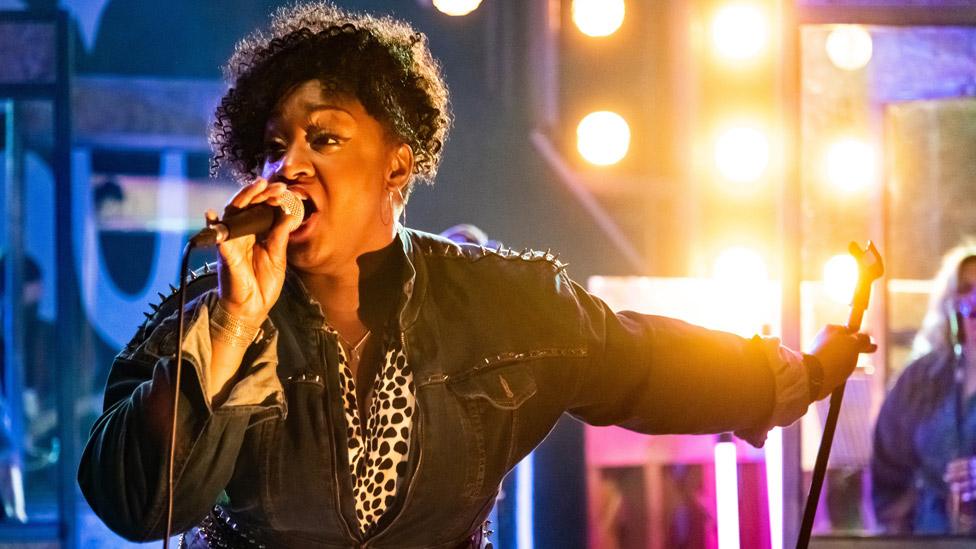Standing at the Sky's Edge: Sheffield musical 'reminds us of what we've lost'
- Published

The musical follows residents of a Sheffield council estate over generations (actress Lauryn Redding pictured)
Musician Richard Hawley has said a Sheffield-based stage musical which has just transferred to London's West End has been successful because it "reminds us of things we've lost".
Standing at the Sky's Edge, featuring songs written by Hawley, opened at the Gillian Lynne Theatre on Wednesday.
The show spans seven decades, following different generations of residents in Sheffield's Park Hill council estate.
Hawley said it had been an "incredible journey" to reach the West End.
The show was first staged at Sheffield's Crucible Theatre in 2019, attracting rave reviews for its realistic depiction of complex social and political issues.
The Covid-19 pandemic halted its initial momentum, but the show later opened at the National Theatre before finally transferring to the West End.
"In all honesty, as much faith as I had in the musical, I guess I didn't really have much faith in people, in a way, that it would be attended by so many human beings," Hawley told BBC News.
"And the way that things are in our country in particular, I never thought it would leave the inside of my head, let alone all the way to the West End, it's incredible. It's kind of changed my thinking."
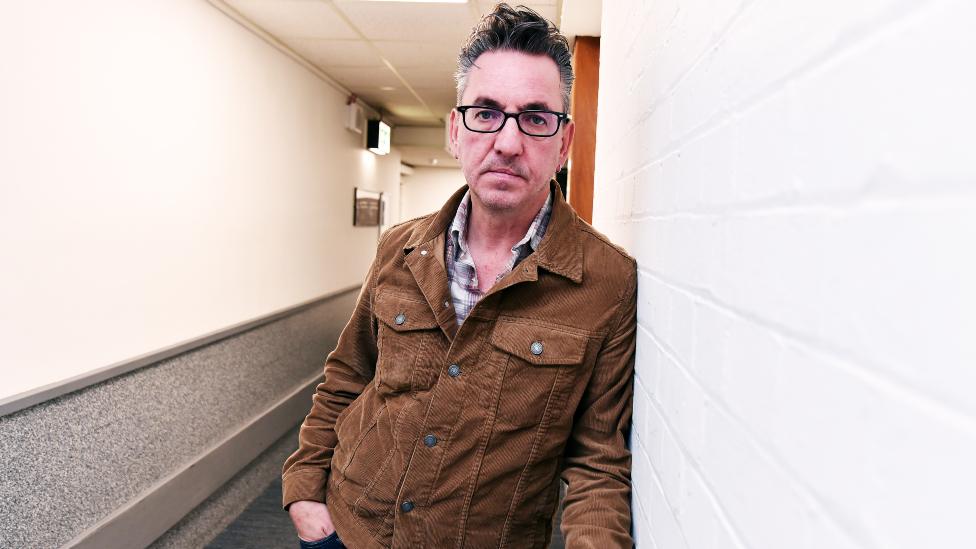
Musician Richard Hawley, previously a member of Pulp and Longpigs, wrote the musical's songs
He reflected: "I think the musical has somehow touched a nerve, there's something about it that reminds us of things that we've lost, and I think the timing of it perhaps, with the state of things in our country at the moment, I think it's tapped into something that I think collectively everyone's thinking."
Written by Chris Bush, the show focuses on three core stories, all of which depict tales of aspiration as the residents dream of a better life.
Three families are seen occupying a particular flat at different periods over six decades - a steel family hit hard by Thatcherism, a family of Liberian refugees, and a middle-class young woman who has fled north following a relationship break-up.
Northern working-class culture is put under the microscope as the residents' struggles to achieve their goals. The obstacles each of them faces range from internal family tensions to external political forces.
"There's anger here about the Thatcherite destruction of northern industry but also ambivalence about Cool Britannia-style urban regenerations that involve social cleansing," noted Nick Curtis of the Evening Standard, external when the show played at the National Theatre.
But while the backdrop and themes are political, Hawley explained he felt strongly that the show should not set out to lecture the audience.
"One of the conditions was I was absolutely adamant when we started this journey 12 years ago, that it must not be a grandstanding, soap box, beating-people-around-the-head, finger-wagging exercise," Hawley explained.
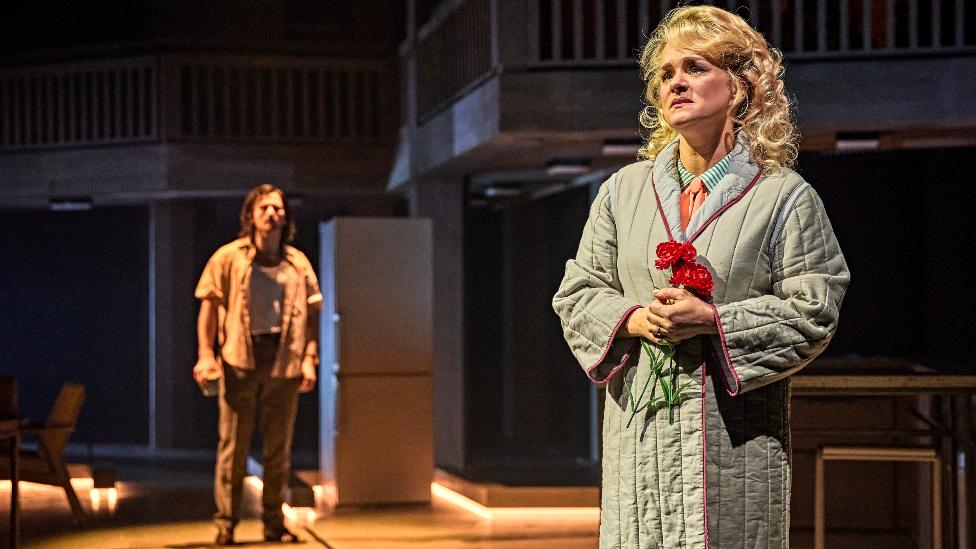
WhatsOnStage said the show was "a towering feat of contemporary musical theatre"
"I think ultimately it is a political statement, but all you have to do is tell the story. It's a fictionalisation of the somewhat dramatic events that happened at Park Hill flats in Sky Edge.
"But all I ever said, one of the very few conditions was to just let the story tell itself. We don't need to add to it our own personal opinions, the story does all the work for you really."
Following its West End debut, Alex Wood of WhatsOnStage awarded, external the show five stars.
"Provoking fevered reactions - many audible gasps or sobs were heard after a variety of plot beats - while being resolutely, brazenly assured in its craft, makes Standing at the Sky's Edge a towering feat of contemporary musical theatre," Wood wrote.
"It stands as a shining tribute to the combined power of both popular music and stage storytelling, and subsidised and commercial theatre. Unmissable."
Clive Davis of the Times was slightly less keen,, external describing the "part musical, part soap opera" combination as an "odd hybrid in his three-star review.
"Weaving domestic incident around the history of Sheffield's Brutalist landmark, the Park Hill estate, this Olivier-winning show is a sincere if uneven love letter to the power of community," he said.
"There's certainly no shortage of passion in the performances, even if the script sometimes resembles a conscientiously assembled checklist of social issues," he added, noting "an awful lot of incident is crammed into a confusing final quarter".
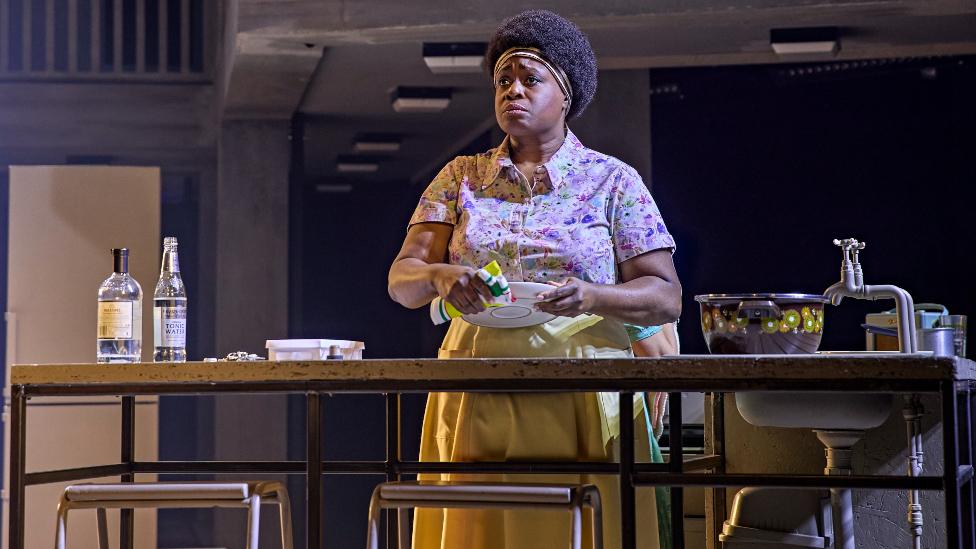
One of the storylines follows a family of migrants from the civil war in Liberia in 1989
Director Robert Hastie told BBC News it was a "proud moment" to have the show open in the West End, five years after its launch at the Sheffield Crucible, "where you could see Park Hill, and see the neighbours we're making this show about".
He added that while some physical changes had been made to the set to inhabit a bigger stage, few creative changes were needed to the show itself, and that lines of dialogue specific to the region had been kept in the script.
"There's a joke about Sheffield Wednesday and Sheffield United," he noted. "But everywhere knows what it is to have to rival football teams, everywhere knows what it is to have the fabulous gay club that everybody knows and has had a daft night in.
"Not everybody might know what Henderson's Relish is," he laughed, "but if you don't then you're missing out, and you should come to the show to find out why."
Hawley agrees: "The meat and potatoes of the whole thing are the same, the main thrust of the piece hasn't changed, but the interesting thing is a lot of the actors have changed because they weren't available or have moved on to other things.
"A couple of the new actors have put their own vibe on it, but I think that's natural, and the work itself can absorb that."
The show's Park Hill estate is a Grade 2-listed piece of brutalist architecture which opened in 1961 as part of a post-war surge of council housing. But the fortunes of the estate have fluctuated over decades.
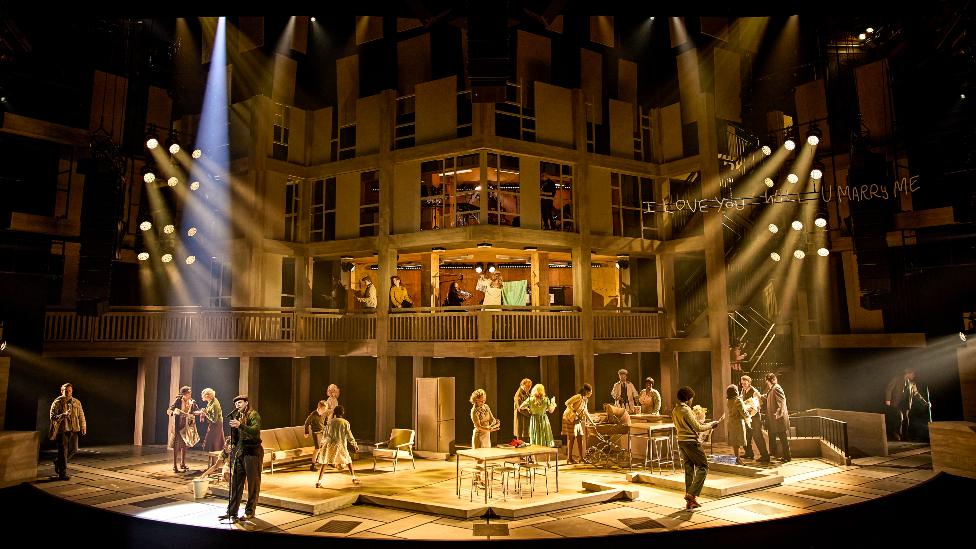
The show has been upscaled for the large Gillian Lynne Theatre, but few creative changes have been made
The show is also in the early stages of being adapted for television, external although it has not yet been confirmed which broadcaster or streamer will air it.
In a four-star review of the show when it played at the National, Sam Marlowe of the Stage described it, external as "a triumphant tribute to all the unacknowledged battles fought and dreams pursued, all the tiny miracles of the everyday".
"The show's texture is fantastically rich. Hawley's music is sweet and rough, woozy and boozy, wistful and enraged."
The Guardian Arifa Akbar also awarded, external it four stars, writing: "Ensemble numbers bring shivers. Feet tap, spines tingle. We find ourselves swaying in our seats. Together with its lovely movement, the show becomes unstoppably winning, ineffably exuberant.
And Fiona Mountford of iNews praised, external the show's universal themes. "By talking about Sheffield, they encompass the whole world," she said in a five-star review.
"It's a bittersweet musical love letter to the city that reaches far beyond South Yorkshire to encompass a haunting meditation on the universal idea of home."
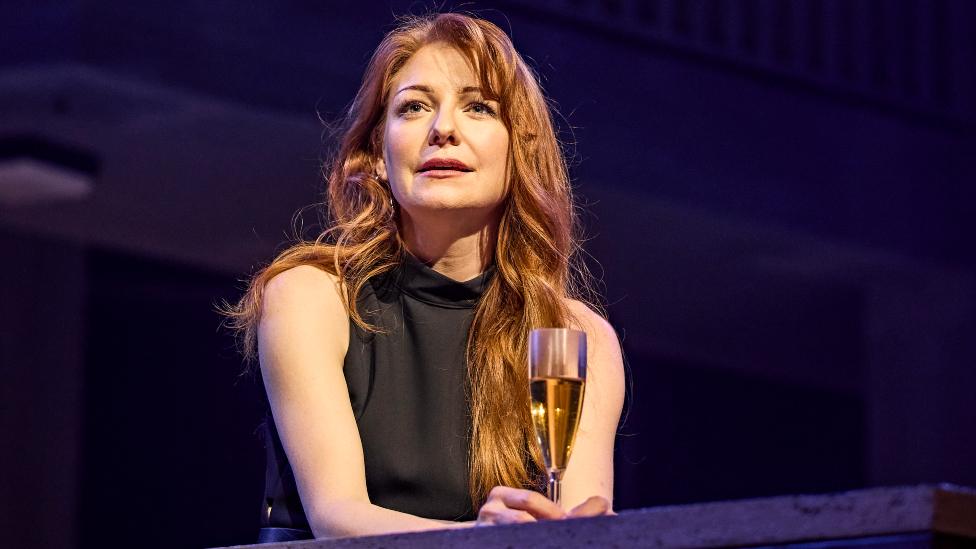
One storyline follows a Londoner who has fled to Sheffield following a relationship breakdown
Hawley attended the press night on Wednesday, but noted; "There are scenes in it which I personally find distressing to watch, it's so close to the bone.
"My father was a steel worker, and all our community was destroyed by Margaret Thatcher and her government, so I lived through it."
While he feels strongly the show should not preach a political message to the audience, Hawley argues that deep societal changes are needed so that differing ideologies and attitudes do not stand in the way of collaboration and progress.
He references a Louis de Bernieres book, Birds Without Wings, commenting: "Whether you're left or right wing, one thing we know for certain is a bird never flew on one wing. We all need each other to fly.
"We cannot make it without each other, no matter who you are, we all need each other to make this a better place than it is now.
"We need to move on, get rid of negative thinking and start being a better set of human beings than we've been taught to be or led to believe. We are a much better country than that, and it's about time started behaving like it."
Related topics
- Published4 April 2023
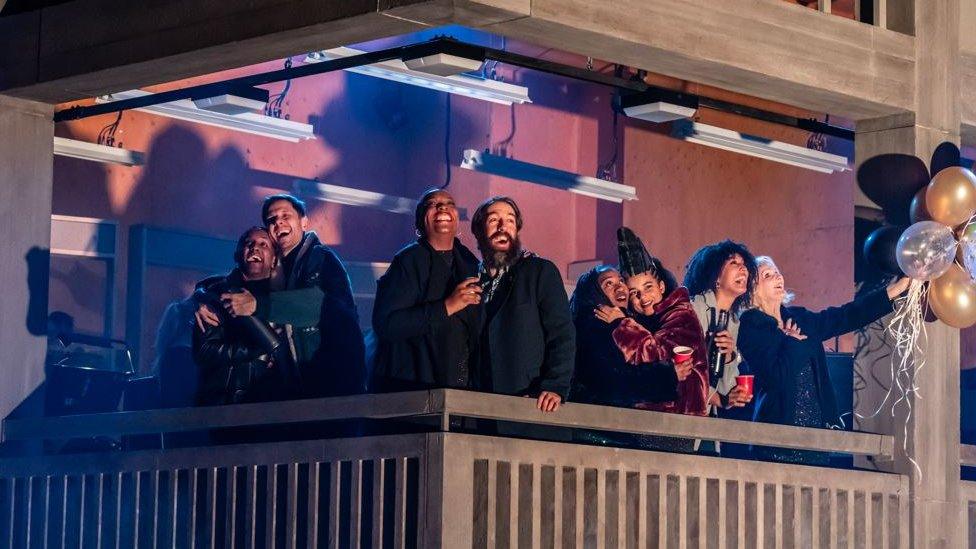
- Published3 April 2023
- Published16 March 2021
